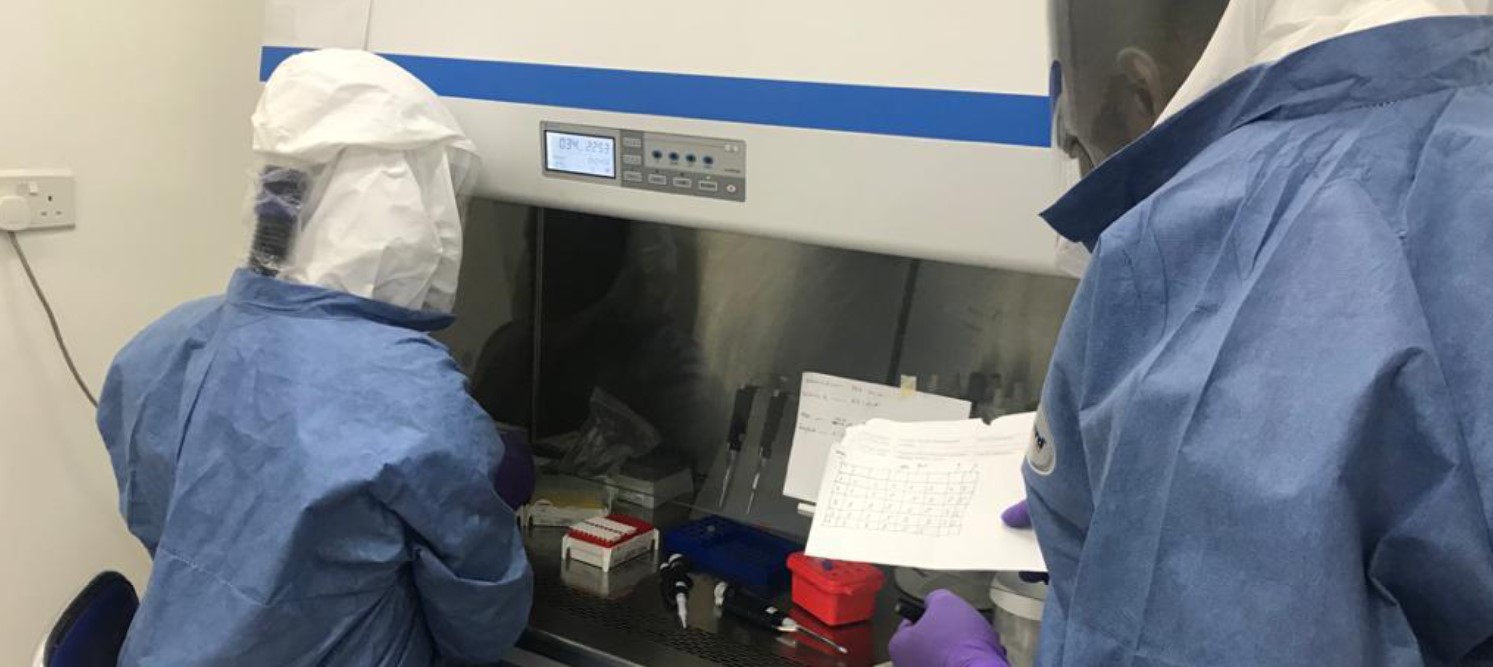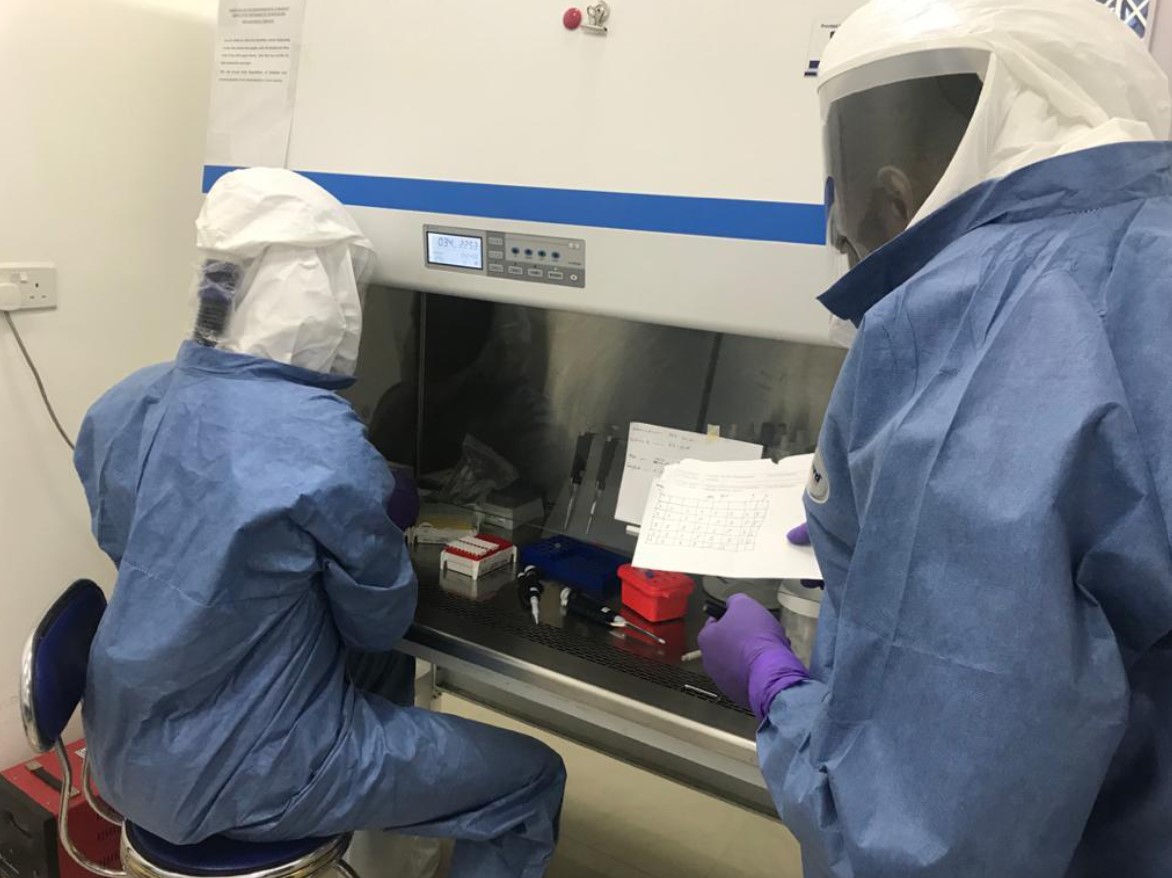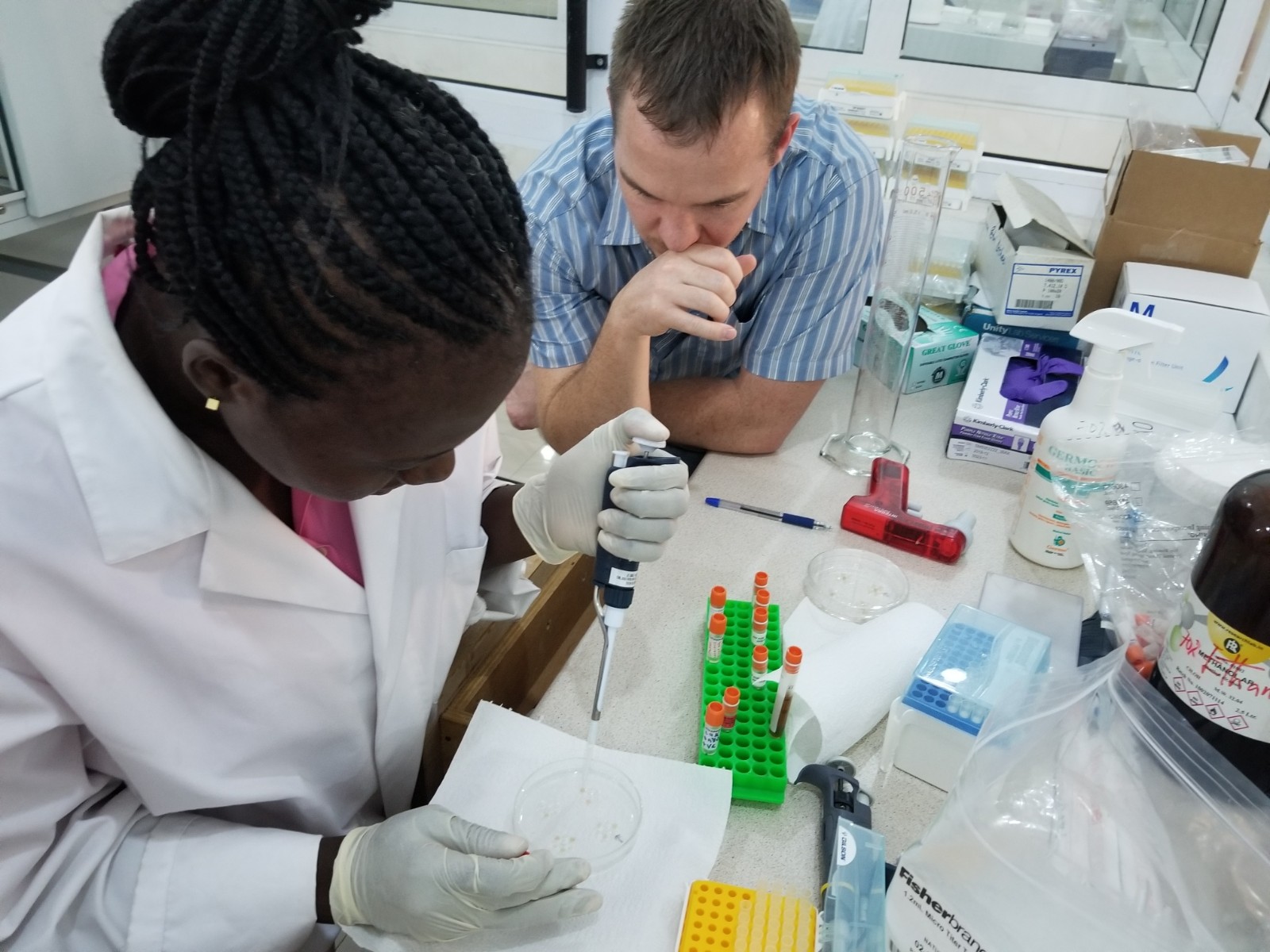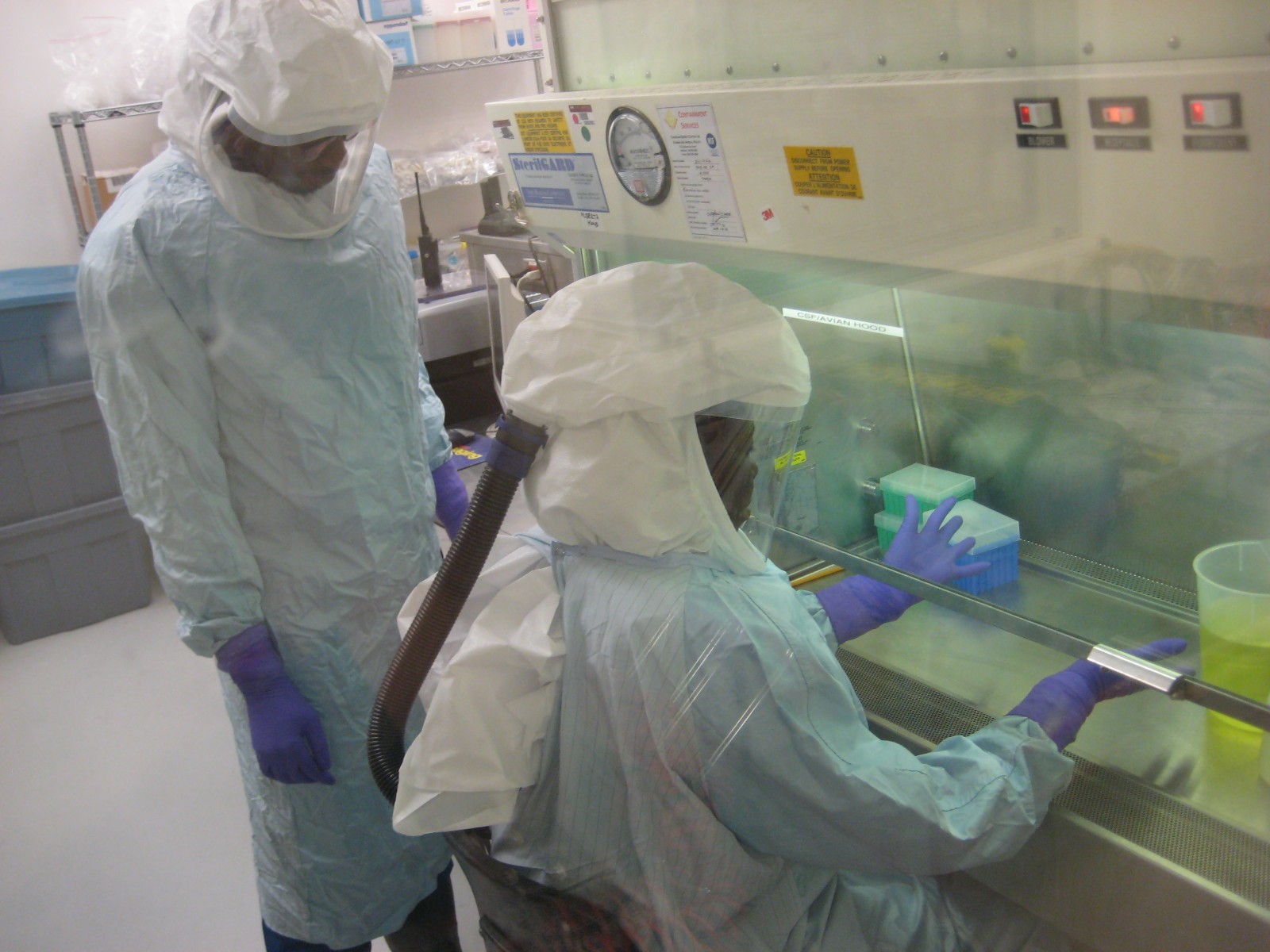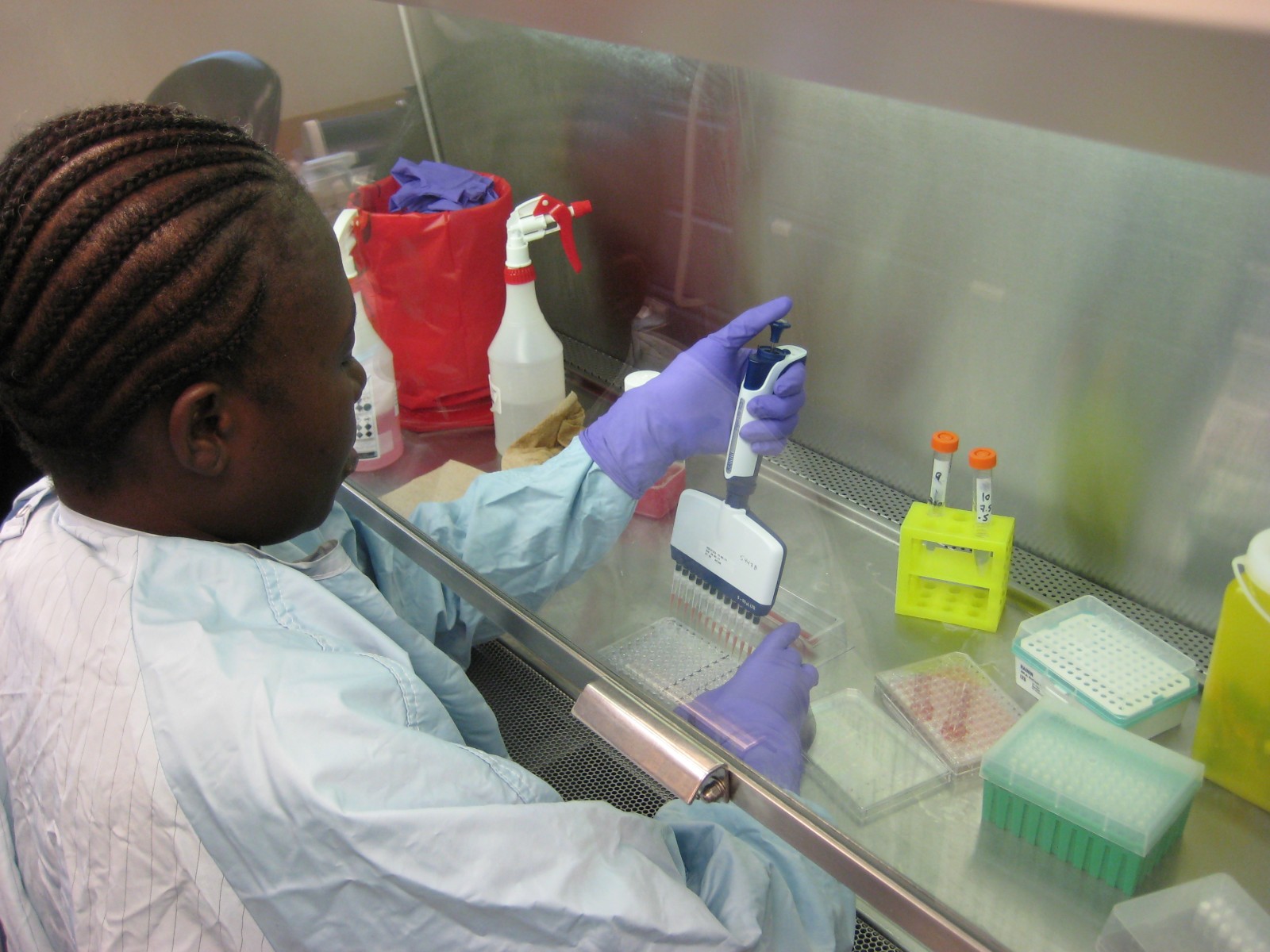Picture (c) Canadian Food Inspection Agency (CFIA) 2020
Testing suspected cases of COVID-19 is an essential element in the response to the current pandemic. It ensures rapid and early detection of infected individuals, as well as timely implementation of treatment and control measures. However, amid the emergency, public health services are encountering difficulties processing a large number of human samples in some countries.
Veterinary laboratories can help face these challenging circumstances. They have the experience and competencies for processing and testing samples for the diagnosis of infectious diseases, as they do this in a daily basis.
In Ghana, Accra Veterinary Laboratory (AVL) has recently reinforced its capacities and expertise, thanks to an OIE Twinning project launched in 2018. The project aimed at enhancing laboratory expertise on avian diseases. In this framework, the laboratory staff has been trained on different diagnostic techniques in the National Centre for Foreign Animal Disease in Canada, an OIE Reference Laboratory on avian influenza. In addition, with the financial support of Global Affairs Canada (GAC), personal protection equipment, such as powered air-purifying respirators, was provided along with other diagnostic equipment, thereby improving the laboratory facilities. This equipment reinforced the safety of the laboratory staff and enabled them to implement biosafety and biosecurity procedures when working with dangerous pathogens.
Picture (c) Canadian Food Inspection Agency (CFIA) 2020
Today, AVL is implementing these new technical capacities and resources to conduct COVID-19 diagnostic tests. More than 3,000 human samples have been processed, helping to identify some of the 834 positive human cases reported so far. Ghanaian health authorities are currently assessing with the Veterinary Services the possibility to involve other veterinary laboratories in Takoradi and Tamale in this initiative.
Picture (c) Canadian Food Inspection Agency (CFIA) 2020
As in many other countries, veterinary laboratories in Ghana are well prepared to support the public health response to the COVID-19 pandemic and expand the testing of humans. Acknowledging the importance of a collaborative approach to reduce the impact of this rapidly spreading virus, the OIE has recently released a guidance that outlines key considerations for testing human samples for COVID-19 in veterinary laboratories.
Access to the OIE guidance on Veterinary Laboratory Support to the Public Health Response for COVID-19 is available in Arabic, English, French, Spanish and Russian.
